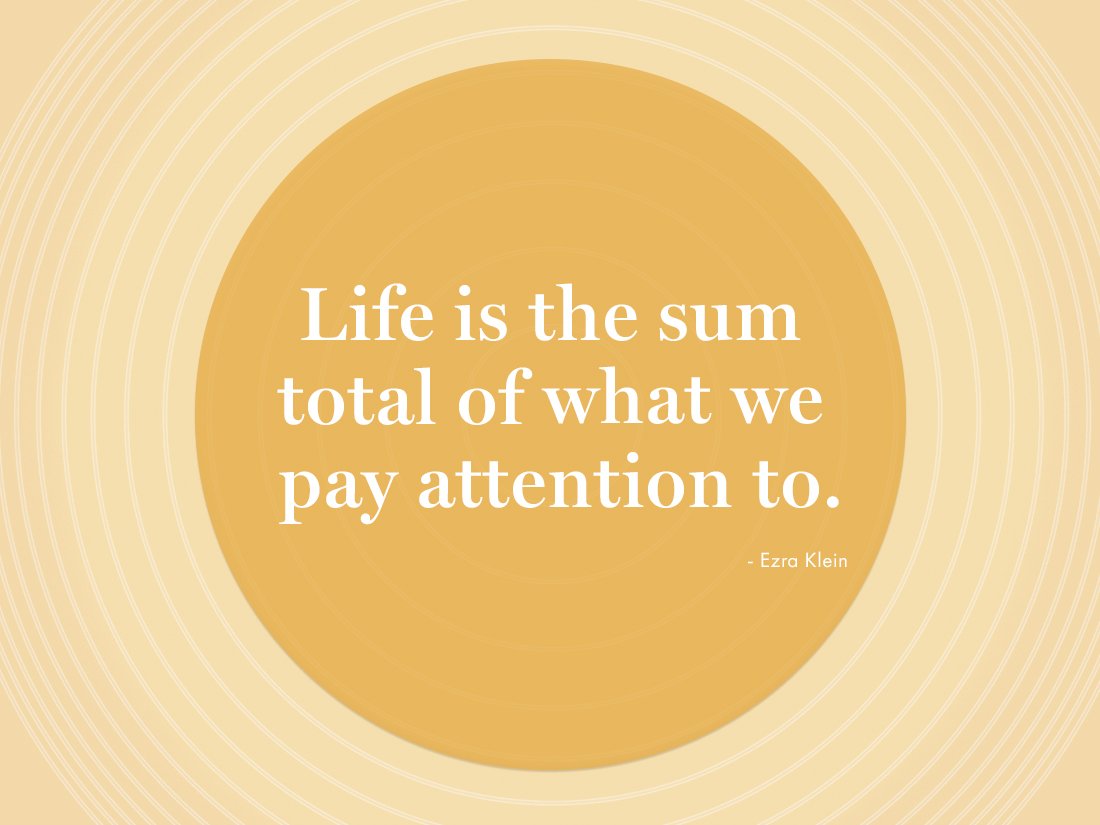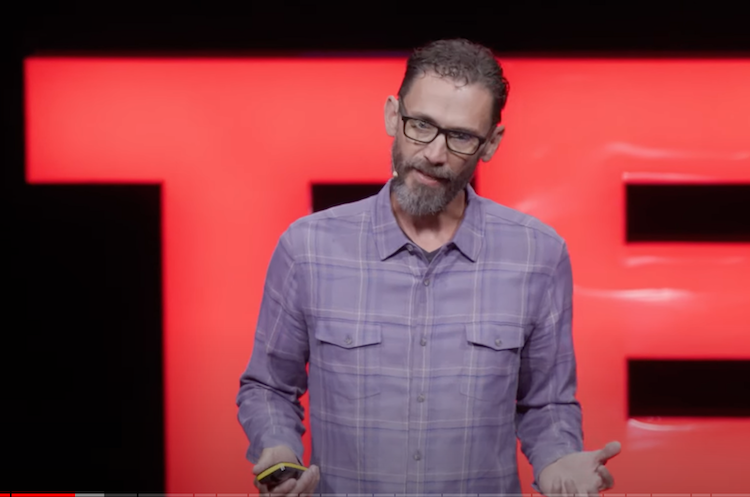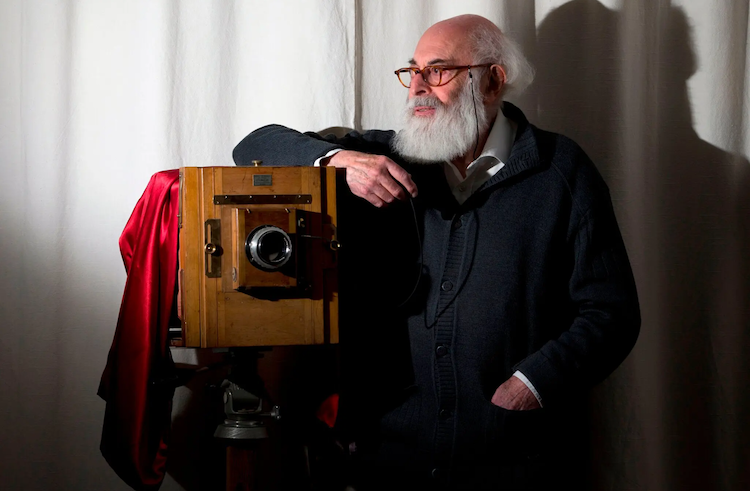Attention Please
In my last newsletter Hit Reset I talked about how I didn't want to sleepwalk through another year. I thought I was talking about how I spent my time but listening to a recent Ezra Klein podcast with Johann Hari, I realised it’s not about time, it’s about attention.
Paraphrasing Klein… If I only have so much attention to give. How I use that attention will decide what I make of the time I have left.
So this month, I’m thinking more about my attention - how I use it, how I protect it and how I nurture it.
Before the podcast, I thought about attention in the narrow sense - equating attention with focus and productivity. And certainly, that kind of purposeful attention is necessary and important but there’s another kind of attention that needs to be nurtured and protected from distractions and that is the mind-wandering kind of attention.
As counterintuitive as it sounds, mind wandering is a form of attention. The problem, quoting Klein again, is that because we associate mind-wandering with distraction, we don’t recognize how much distraction has actually wrecked mind-wandering.
According to Moshe Bar, a professor of neuroscience at Bar-Ilan University in Tel Aviv and the author of Mindwandering: How Your Constant Mental Drift Can Improve Your Mood and Boost Your Creativity, mind-wandering is essential to creativity and problem-solving. This is how good ideas are born, he says.
Intuitively, we know this. When we ask our 50:50 Project guests what they do when they're stuck, their answers are often - take a walk, go for a run, do some yoga.
Jo Moseley finds when she moves in nature and gives herself space, ideas suddenly pop into her head.
Ethics Expert Dr Bettina Palazzo drops what she is doing and trusts her brain to go into diffuse mode.
Italian journalist Stefania Meditti openly embraces doing nothing and simply observes the way she feels in a detached way, waiting to see what the moment brings.
Mind-wandering is only for when you’re stuck. When we are thinking about how to create our third act we sometimes need to get out of our heads to reflect on what’s important, connect the dots of our experiences and expand our idea of what is possible.
So this February, I plan on paying more attention to my attention. If you want to join me here’s what I will be listening to, reading and watching on my attention adventure.
FEBRUARY’S ATTENTION ADVENTURE
LISTEN
Here’s the Podcast with Ezra Klein and Johann Hari that got me thinking differently about time and attention. I loved learning about James Williams's three layers of attention: Spotlight, Starlight and Daylight.
READ
How To Do Nothing: Resisting the Attention Economy by artist, writer and Stanford professor Jenny Odell despite the title is not about doing nothing! Her idea of doing nothing is really about taking time out of one’s day to engage in an activity without considering whether it’s “productive” in the traditional time is money sense.
Ezra Klein also has an interview with Jenny Odell - can you tell I’m a big Ezra fan!
WATCH
How to Find Attention, Mindfulness, and Creativity in the Ordinary by Bill Keaggy is a short quirky talk about finding the simple beauty in the everyday. He encourages you to take a ‘30-Minute Noticing Workout’ that involves just three steps - walk around, pay attention and take pictures.
In the news…
Jeremy Hunt tells the over-50s that “Britain needs you.”
“So, to those who retired early after the pandemic or haven’t found the right role after furlough, I say: Britain needs you. And we will look at the conditions necessary to make work worth your while.”
I’m pleased this conversation is happening but I’m not sure the government is actually listening. In case they are… I’d direct them to Dorothy Byrne’s Guardian article explaining why older people want to work but bosses don’t want us to and Lucy Standing’s video pointing out that there might be some systemic issues that need to be addressed first.
And finally… we celebrate a life well lived.
Adolfo Kaminsky - The Forger
Watch this amazing Emmy Award-winning short documentary ‘The Forger’ about Adolfo Kaminsk who died last month at age 97.
As a teenager, Adolfo Kaminsky saved thousands of lives by forging passports to help children flee the Nazis. And as an adult he continued to spend his life helping others escape atrocities around the world.






